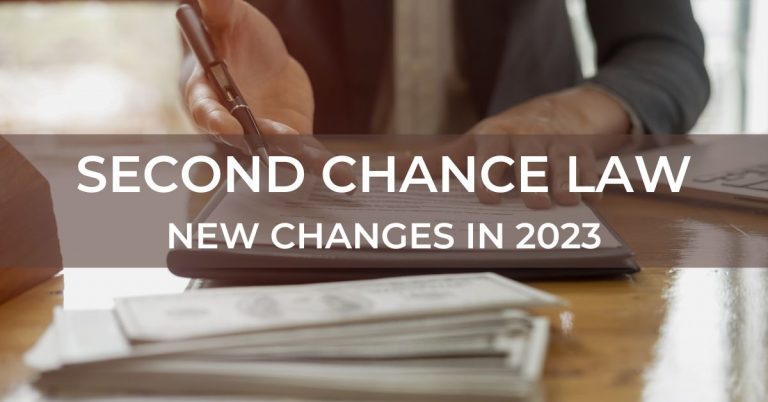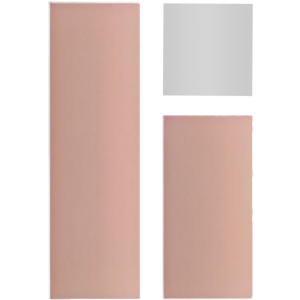Second Chance Law in Spain

What is the Second Chance Law?
The Second Chance Law is the legal procedure by which a debtor (whether an individual or a self-employed person), in a situation of insolvency, can negotiate, reduce or even cancel all of his debts. It is intended for bona fide debtors who are unable to pay their debts and wish to make a new start.
Currently, the second chance procedure is regulated by the Consolidated Text of the Insolvency Law (Texto Refundido de la Ley Concursal) approved by Spanish Royal Decree-Law 1/2020, of 5 May, recently amended by Law 16/2022, of 5 September.
Second Chance Law Requirements.
Not everyone who declares debts to a claimant will be covered by this regulation. This law is focused on more vulnerable situations and sets out minimum requirements that must be complied with if the person wishes to benefit from it.
– The debtor must have enforceable debts with at least two different creditors. Financial institutions, public companies, suppliers, etc.
– It is necessary to declare a state of current or imminent insolvency.
– Proof that the debtor has always acted in good faith.
– In case of having previously benefited from the Second Chance Law (LSO), or not having done so in the last 5 years after an exoneration with liquidation of the active mass, or 2 years, by a payment plan.
These requirements constitute the intention of the law to demonstrate the good faith of the debtor, and that said debtor is in a difficult economic situation due to business or personal misfortunes and not due to bad faith.
New Changes After the 2022 Law Amendment.
On 1 January 2023, Law 16/2022 of 5 September came into force. This has led to important changes, among which we can highlight the following:
The debtor can keep his habitual residence.
Debtors can now settle their debts without having to liquidate all their assets whilst preserving their habitual residence. For this purpose, the possibility of a 3-year interest-free payment plan is foreseen as a standard rule, although it may be extended to 5 years when the debtor’s property is not foreclosed.
Public Debt Can Be Cleared Up To €20,000.
Although not all debts can indeed be cancelled, such as child support or the salary of dependent workers, among others, the Second Chance Law allows the exoneration of debts of up to €20,000 with public entities.
This is not the maximum amount that can be accumulated, but rather it allows exemption of up to €10,000 per debtor with the Tax Office (Hacienda Pública) and €10,000 with the Social Security. For the first five thousand euros of debt, the exoneration will be full, and from this amount onwards the exoneration will reach fifty percent of the debt up to the maximum previously indicated.
No prior out-of-court settlement attempt with creditors is required.
The amendment completely removes the step before going to court that used to be the attempt to reach an amicable agreement with creditors, which in many cases was not effective and entailed additional costs that the debtor could not assume.
The debtor is now free to prepare the documentation directly with his lawyer, which speeds up the process considerably.
Procedure
Initiating a second chance procedure is now easier than ever thanks to the recent changes. Since it is no longer necessary to reach an out-of-court agreement with creditors, the process can be initiated directly through the courts.
There are two ways to apply for the debtor’s exoneration:
1. Settlement procedure subject to a payment plan (this option would allow the habitual residence to be preserved).
2. Proceeding to liquidate the debtor’s assets.
Commercial Court application.
The procedure is initiated by an application submitted to the Commercial Court, whether the debtor is self-employed or not, detailing the debtor’s current or imminent insolvency situation, and the fulfilment of all legal requirements to benefit from the Second Chance Law.
Judicial Phase.
Once the application has been submitted, the Court will review it and, if everything is in accordance with the requirements, the petitioner’s application will be admitted.
1. Exoneration with payment pland and allegations.
In case the debtor would like to keep some of his goods and assets, he may commit himself to a payment plan in which the conditions, assets and amounts are fixed on an income and expense basis. This payment plan will generally have a duration of 3 years, although it can be extended to 5 years if the habitual residence does not change.
2. Exoneration with Liquidation of Personal Assets and Bankruptcy Proceedings.
The second option to save the debt is by liquidating personal assets. This means that the debtor’s assets are placed at the disposal of the Court and will be liquidated at public auction in order to cover the debt incurred.
Unlike the payment plan, here it is possible to achieve full debt cancellation.
What happens after debt cancellation?
Once the court case has been concluded and the debts have been cancelled or a payment plan has been established, the debtor can again enjoy the benefits that were available to him prior to acquiring this treatment. Project financing, bank cards and other formalities are once again at their disposal.
Creditor´s claims.
As previously explained, the essential pillar underpinning the Second Chance Law is the principle of good faith, so that, if good faith is disproved, it is possible that the exoneration of the debt may be cancelled, even after the trial has taken place.
The case could be reviewed during the 3 years following the judgment, if requested by the creditors, either because they suspect income in favour of the debtor that has not been declared at the time of the trial (such as inheritances or donations) or because there are indications showing that the debtor has not acted in good faith.
Advantages of the Second Chance Law.
Debt cancellation.
The main goal of anyone who decides to take advantage of the law is the possibility to fully cancel their exonerable debts in order to make a new start without having to continue with debts that they cannot afford to pay.
The possibility of keeping your assets and habitual residence.
Thanks to the possibility of setting up a payment plan, there is no longer a need to meet payment obligations with the liquidation of assets and the habitual residence.
Cheaper and faster.
Although the resolution times depend on each case, the non-intervention of the Public Notary, bankruptcy mediator, Commercial Register and Chamber of Commerce, along with the fact that the maximum resolution time is 18 months, make the process quicker and cheaper to execute.
Debt Cancellation with Public Entities.
Up to €10,000 with the Tax Office and €10,000 with the Social Security authorities is the maximum amount that can be exonerated. For the remainder, a payment plan will be established according to the debtor’s possibilities.
Stay of Execution, Embargoes and the Accrued Interest.
The good news for debtors who are involved in enforcement proceedings is that, once bankruptcy proceedings have been declared, their processing is suspended. Likewise, as a general rule, the accrual of legal or conventional interest is suspended.
Register of Debtors and Financing Possibilities.
The Second Chance Law decrees the removal from the insolvency and default registers of those whose debts have been exonerated at the time of the judicial resolution, allowing them to request economic financing for other projects.
Why a lawyer specialising in the Second Chance Law is important?
If you cannot pay your debts, our advice is to contact a lawyer specialising in the Second Chance Law. They will study your situation and advise you on how to achieve your goals.
At Legal Iuris we are experts in the Second Chance Law and we have specialised lawyers who will help you to cancel your debts in the most efficient way. Make contact with our team to know more.
CONTACT OUR TEAM
We provide personalized service to each of our clients, taking the time to understand their unique situation and offering tailored solutions to their legal issues. Leave us your enquiry and we will contact you.

